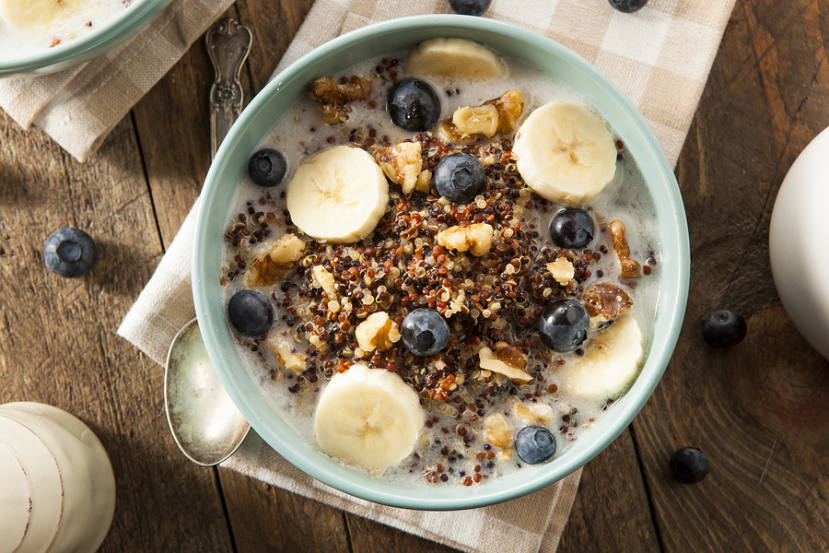
Colorectal cancer is one of the most common cancers in Canada. Making balanced diet and lifestyle choices can help lower your risk. Read on to learn about the risk factors for colorectal cancer and the healthy choices you can make for cancer prevention.
What is colorectal cancer?
Colorectal cancer is a cancer that occurs in the colon (large intestine) or the rectum (the last part of the colon). Sometimes it is called colon cancer.
What are the risk factors for colorectal cancer?
The risk factors for colorectal cancer include:
- Having a family history of colorectal cancer
- Inflammatory bowel disease
- Not being physically active
- Being overweight or obese
- Eating a diet high in red and processed meats
- Cooking meats at high temperatures (see this article for tips on grilling safely)
- Eating a diet low in fibre
- Drinking alcohol
- Smoking
How do I lower my risk of colorectal cancer?
To help lower your risk of colorectal cancer, follow these tips:
- Eat less red and processed meats: Limit red meat like beef and pork to no more than about 6 servings or 17 oz of cooked meat per week. Eat very little, if any, processed meats (like deli meat) that are prepared by smoking, curing or with preservatives. Learn more about including plant-based proteins in your diet.
- Eat whole grains. Replace refined grains with whole grains. Examples of whole grains include whole oats, brown rice, barley, quinoa, corn, etc. Read our article on choosing whole grains for more information.
- Eat foods high in fibre: Include more vegetables, fruit and whole grains in your diet. Don’t forget about eating more legumes like beans, peas and lentils. Learn about adding more fibre to your diet.
- Include dairy products like milk and yogurt in your diet. Studies have shown that consuming dairy products is linked to lower risk of colorectal cancer.
- Move more and sit less. Moderate and vigorous physical activity has shown to decrease risk of colorectal cancer. Aim to get at least 150 minutes of moderate to vigorous physical activity per week and make sure to break up long periods of sitting. Read about different tips you can try for getting active.
- Limit the amount of alcohol you drink: If you drink alcohol, limit the amount to no more than two drinks a day for men and one drink per day for women. Learn the amount in one drink here.
- Avoid smoking and second-hand smoke: Smoking and being around people who smoke increases the risk for colorectal cancer. If you’re looking for help quitting, find free help in your area here.
Do bowel cleanses help prevent colorectal cancer?
No. There is no evidence that bowel cleanses are effective in lowering the risk of colorectal cancer. They may even be harmful. Choose high fibre foods like vegetables, fruits, whole grains, nuts, seeds and legumes to help keep your digestive system healthy.
Give some of these high fibre recipes a try:
Banana whole grain griddle cakes
Beet and barley salad
Easy red lentil dahl
Broccoli, quinoa, cheddar bake
How can a dietitian help?
A dietitian can support you in making changes to your diet that help lower your risk of colorectal cancer. For example, a dietitian can give you advice on how to incorporate more whole grains and plant-based proteins into your usual meals. They can also advise you on how much fibre and other nutrients you need.
Connectwith a dietitian today!
Bottom line
You can help lower your risk of colorectal cancer by eating more whole grains, fibre and dairy, and reducing your intake of red and processed meat, and alcohol. Staying active and reducing time spent sitting is also important.
You may also be interested in:
Choosing Whole Grains FAQ
The Truth About Nitrates
Focus on Fibre
Top 5 Reasons to See a Dietitian
This article was written and reviewed by dietitians from Dietitians of Canada. The advice in this article is intended as general information and should not replace advice given by your dietitian or healthcare provider.
Last Update – May 6, 2022